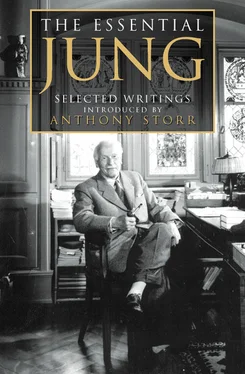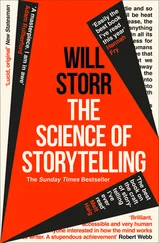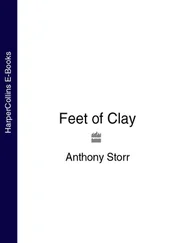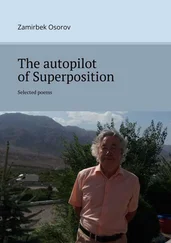I was stunned by this vision. I realized, of course, that it was a hero and solar myth, a drama of death and renewal, the rebirth symbolized by the Egyptian scarab. At the end, the dawn of the new day should have followed, but instead came that intolerable outpouring of blood – an altogether abnormal phenomenon, so it seemed to me. But then I recalled the vision of blood that I had had in the autumn of that same year, and I abandoned all further attempt to understand.
Six days later (18th December, 1913), I had the following dream. I was with an unknown, brown-skinned man, a savage, in a lonely, rocky mountain landscape. It was before dawn; the eastern sky was already bright, and the stars fading. Then I heard Siegfried’s horn sounding over the mountains and I knew that we had to kill him. We were armed with rifles and lay in wait for him on a narrow path over the rocks.
Then Siegfried appeared high up on the crest of the mountain, in the first ray of the rising sun. On a chariot made of the bones of the dead he drove at furious speed down the precipitous slope. When he turned a corner, we shot at him, and he plunged down, struck dead.
Filled with disgust and remorse for having destroyed something so great and beautiful, I turned to flee, impelled by the fear that the murder might be discovered. But a tremendous downfall of rain began, and I knew that it would wipe out all traces of the dead. I had escaped the danger of discovery; life could go on, but an unbearable feeling of guilt remained.
When I awoke from the dream, I turned it over in my mind, but was unable to understand it. I tried therefore to fall asleep again, but a voice within me said, “You must understand the dream, and must do so at once!” The inner urgency mounted until the terrible moment came when the voice said, “If you do not understand the dream, you must shoot yourself!” In the drawer of my night table lay a loaded revolver, and I became frightened. Then I began pondering once again, and suddenly the meaning of the dream dawned on me. “Why, that is the problem that is being played out in the world.” Siegfried, I thought, represents what the Germans want to achieve, heroically to impose their will, have their own way. “Where there is a will there is a way!” I had wanted to do the same. But now that was no longer possible. The dream showed that the attitude embodied by Siegfried, the hero, no longer suited me. Therefore it had to be killed.
After the deed I felt an overpowering compassion, as though I myself had been shot: a sign of my secret identity with Siegfried, as well as of the grief a man feels when he is forced to sacrifice his ideal and his conscious attitudes. This identity and my heroic idealism had to be abandoned, for there are higher things than the ego’s will, and to these one must bow.
These thoughts sufficed for the present, and I fell asleep again.
The small, brown-skinned savage who accompanied me and had actually taken the initiative in the killing was an embodiment of the primitive shadow. The rain showed that the tension between consciousness and the unconscious was being resolved. Although at the time I was not able to understand the meaning of the dream beyond these few hints, new forces were released in me which helped me to carry the experiment with the unconscious to a conclusion.
This dream is typical of dreams occurring in middle life when a change in attitude is demanded. It was about this time (1913) that Jung gave up his position as lecturer (Privatdozent) in the University of Zurich, thus abandoning his academic career. Jung felt that this sacrifice was required of him as surely as the sacrifice of Siegfried was demanded in the dream; but it nevertheless cost him a great deal to make it.
From “Confrontation with the Unconscious” MDR, pp. 185–6/193–4
In the midst of this period when I was so preoccupied with the images of the unconscious, I came to the decision to withdraw from the university, where I had lectured for eight years as Privatdozent (since 1905). My experience and experiments with the unconscious had brought my intellectual activity to a standstill. After the completion of The Psychology of the Unconscious I found myself utterly incapable of reading a scientific book. This went on for three years. I felt I could no longer keep up with the world of the intellect, nor would I have been able to talk about what really preoccupied me. The material brought to light from the unconscious had, almost literally, struck me dumb. I could neither understand it nor give it form. At the university I was in an exposed position, and felt that in order to go on giving courses there I would first have to find an entirely new and different orientation. It would be unfair to continue teaching young students when my own intellectual situation was nothing but a mass of doubts.
I therefore felt that I was confronted with the choice of either continuing my academic career, whose road lay smooth before me, or following the laws of my inner personality, of a higher reason, and forging ahead with this curious task of mine, this experiment in confrontation with the unconscious. But until it was completed I could not appear before the public.
Consciously, deliberately, then, I abandoned my academic career. For I felt that something great was happening to me, and I put my trust in the thing which I felt to be more important sub specie æternitatis. I knew that it would fill my life, and for the sake of that goal I was ready to take any kind of risk.
Siegfried is one characteristic personification of the archetype of the hero. Hero myths are found all over the world; and, from whatever culture they originate, show striking similarities. The archetype does not correspond to the actual manifestation produced by any particular culture; yet it underlies all manifestations produced by all cultures.
From “Psychological Aspects of the Mother Archetype” CW 9 i, par. 155
Again and again I encounter the mistaken notion that an archetype is determined in regard to its content, in other words that it is a kind of unconscious idea (if such an expression be admissible). It is necessary to point out once more that archetypes are not determined as regards their content, but only as regards their form and then only to a very limited degree. A primordial image is determined as to its content only when it has become conscious and is therefore filled out with the material of conscious experience. Its form, however, as I have explained elsewhere, might perhaps be compared to the axial system of a crystal, which, as it were, preforms the crystalline structure in the mother liquid, although it has no material existence of its own. This first appears according to the specific way in which the ions and molecules aggregate. The archetype in itself is empty and purely formal, nothing but a facultas praeformandi, a possibility of representation which is given a priori. The representations themselves are not inherited, only the forms, and in that respect they correspond in every way to the instincts, which are also determined in form only. The existence of the instincts can no more be proved than the existence of the archetypes, so long as they do not manifest themselves concretely. With regard to the definiteness of the form, our comparison with the crystal is illuminating inasmuch as the axial system determines only the stereometric structure but not the concrete form of the individual crystal. This may be either large or small, and it may vary endlessly by reason of the different size of its planes or by the growing together of two crystals. The only thing that remains constant is the axial system, or rather, the invariable geometric proportions underlying it. The same is true of the archetype. In principle, it can be named and has an invariable nucleus of meaning – but always only in principle, never as regards its concrete manifestation. In the same way, the specific appearance of the mother-image at any given time cannot be deduced from the mother archetype alone, but depends on innumerable other factors.
Читать дальше












